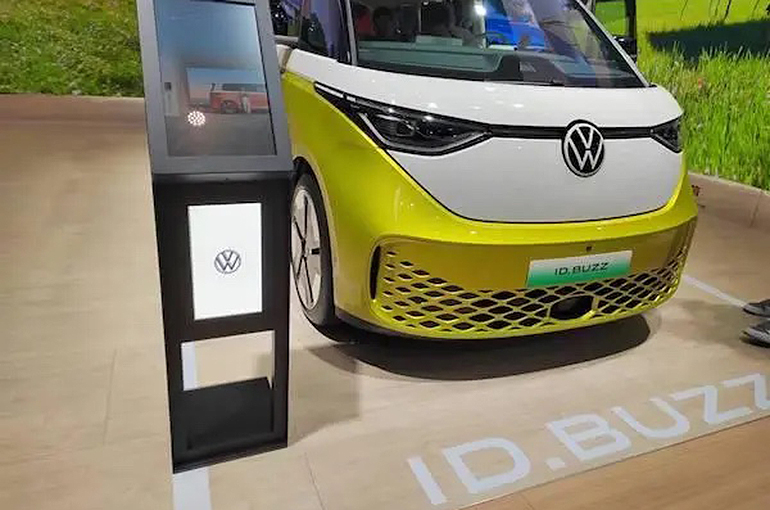 Only Three Types of Carmakers Will Survive in Chinese Market, SAIC Volkswagen Executive Says
Only Three Types of Carmakers Will Survive in Chinese Market, SAIC Volkswagen Executive Says(Yicai) Nov. 22 -- Competition in China’s automotive market is fierce, and in the future, only global mainstream auto brands, leading new energy vehicle manufacturers, such as Tesla, and those constantly improved locally owned brands will survive, according to a senior executive at SAIC Volkswagen Automotive.
Yu Jingmin, executive deputy general manager of sales and marketing at the joint venture between Chinese carmaker SAIC Motor and Germany’s Volkswagen, told that to Yicai during the ongoing 21st Guangzhou International Automobile Exhibition, also known as the Guangzhou Auto Show.
SAIC Volkswagen will stabilize its sales volume and market share under such a competitive environment to become one of the survivors, Yu noted.
SAIC Volskwagen’s priority to survive will be presenting high-quality products and controlling costs, thus providing customers with high-quality vehicles at not expensive prices, instead of poor-quality and cheap ones, as well as guaranteeing reasonable profits and to address the issue of JVs reacting and adapting relatively slower to the fast-changing Chinese environment in terms of competition, Yu pointed out.
JVs should no longer create cars by just bringing in products and technologies from their shareholders but rely on their own capabilities through digestion and absorption, Yu added. For instance, SAIC Volkswagen’s future plug-in hybrid electric vehicles will be exclusively customized products for the Chinese market, and the Chinese teams will be responsible for 75 percent of the research and development.
Over the past two years, SAIC Volkswagen focused on implementing the strategy of ‘better surviving and developing together with resellers’ to deal with clients with resellers to create marketing-related topics and retain more users, Yu said.
Yu predicted that the NEV penetration rate in the Chinese market will likely reach 35 percent this year and exceed 43 percent next year, to eventually get close to 50 percent by 2025. Swift changes to the market’s structure will also result in unprecedentedly fierce competition.
However, JV automakers have a relatively lower penetration rate of NEVs, which resulted in major operating crises and shutdowns over recent years. Fuel-powered vehicles remain the products that mainly support SAIC Volkswagen’s business performance.
To face such a challenge, SAIC Volkswagen joined the price war in China’s NEV market by slashing prices in July. The starting price of the Volkswagen ID.3 was cut by CNY37,000 (USD5,200) to around CNY120,000 (USD16,855), boosting sales of the model. After July, SAIC Volkswagen’s NEV average monthly sales exceeded 10,000 units, with the figure surpassing 15,000 units last month. The JV delivered over 13,000 Volkswagen ID.3s in October.
Yu also predicted that deliveries of SAIC Volkswagen’s Volkswagen-branded NEVs would be close to 150,000 units this year and exceed 200,000 units next year, as the Volkswagen ID.Next model will begin mass production and hit the market in June of next year.
Editors: Tang Shihua, Futura Costaglione